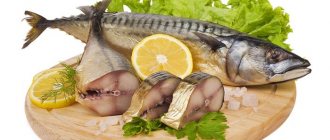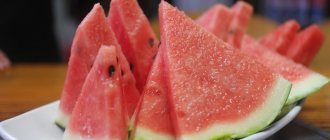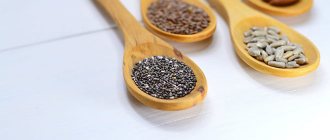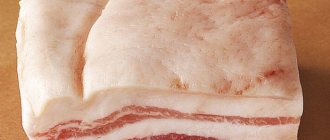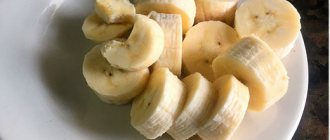Herring under a fur coat is the main salad on the festive New Year's table. However, this is an extremely fatty, high-calorie and heavy dish, which contains many different carbohydrate ingredients. As a result, it is difficult and takes a long time to digest, which can cause indigestion and stomach upsets, stool problems and abdominal pain. And mayonnaise and herring often provoke allergies and even poisoning, especially in young children.
Therefore, such salads are not recommended during breastfeeding. However, with proper selection of ingredients, exclusion of mayonnaise and a small dosage, this dish can be eaten even during lactation. Let's take a closer look at whether a nursing mother can eat herring under a fur coat.
Useful elements in herring
Herring is an invaluable source of vitamins and minerals, Omega 3 acids, necessary for the full functioning of all internal organs and systems. Eating this nutritious fish helps the mother increase the fat content and value of breast milk, which ensures the active development of the child.
Composition and beneficial properties of herring:
- Vitamins A, B, D - increase immunity, protect the body from viruses, infections, improve the functioning of the nervous system.
- Omega3 saturated fatty acids strengthen the child’s skeletal elements, improve metabolism, the functioning of the cardiovascular system, and normalize cholesterol levels in the blood.
- Iodine – improves the functioning of the thyroid gland, as well as the endocrine system as a whole.
- Selenium – has an antioxidant effect, inhibits the processes of premature aging of cells, and is considered an effective prevention of cancer.
- Contains an optimally balanced amount of proteins and fats, improving digestion and stimulating metabolism.
The reasons why you can eat herring while breastfeeding lie in its unique biochemical composition. Just 200-250 g of fish contains the daily requirement of vitamin D, as well as proteins necessary for both the mother’s body, weakened after childbirth, and the baby.
When answering whether a nursing mother can eat herring, doctors emphasize that this healthy product must be present in the diet during breastfeeding, but in limited quantities.
Beneficial features
You need to regularly eat herring while breastfeeding, this helps the development of bone tissue in the child and prevents rickets. Oily fish improves mother's skin: nourishes and moisturizes, slows down the aging process.
| Benefit | The substance and its action |
| Normalization of cholesterol levels | Choline participates in metabolic processes, maintaining lipid balance |
| Increasing the body's defenses, preventing anemia | Vitamin B6 organizes the immune response, nervous system processes, and the formation of red blood cells |
| Normalization of blood composition | B12 plays an important role in metabolic chains, hematopoiesis |
| Maintaining Energy Levels | PP is part of oxidative reactions |
| Healthy teeth and bones | Phosphorus ensures energy metabolism and tissue mineralization |
| Integrity of mucous membranes, normal functioning of the stomach | Chlorine forms hydrochloric acid |
| Full activity of female organs | Iodine is important for the functioning of the thyroid gland and the formation of hormones |
| Preventing brittle bones | Manganese is needed for tissue formation and normal reproductive processes. |
| Prevention of anemia | Copper is involved in iron metabolism and conducts oxygen to tissues |
| Protection against viral agents | Selenium has an immune-stimulating effect |
| Cheerful mood | Chromium regulates glucose levels |
Harm from herring
When answering the question of mothers whether it is possible to salt herring while breastfeeding, doctors recommend taking into account not only the beneficial properties of this fish, but also its possible harm.
Harm of salted herring during lactation:
- like any other food product, fish can cause an allergic reaction in both adults and newborns;
- when salting herring, many manufacturers use preservatives and other synthetic additives, which can cause individual intolerance to the body;
- a large amount of salt in the product causes fluid retention and edema;
- If a lightly salted product is stored incorrectly, the risk of helminthic infestations increases significantly.
When consuming herring while breastfeeding, you need to remember the existing contraindications. This product should not be eaten if you have gastritis, gastric and duodenal ulcers, arterial hypertension, exacerbation of pancreatitis, or kidney disease. Also, this type of fish is not recommended for consumption in diseases of the digestive system, accompanied by an increased level of gastric acidity.
Can a nursing mother eat salted herring - according to the opinion of many therapists, pediatricians, including Dr. Komarovsky, as well as reviews from many nursing mothers, this product can be included in a woman’s menu after childbirth, but in limited quantities.
Negative consequences of eating herring during breastfeeding
To ensure a long shelf life, manufacturers treat carcasses with preservatives, such as sodium benzoate, which extends the shelf life several times. In general, the ingredient is quite harmless, but sometimes it can lead to allergies or hives.
A salty product requires drinking a lot, and after a while the need for sweets increases. This vicious circle can lead to obesity problems.
Incorrect processing of fish and its improper storage increase the risk of infection with various parasites.
You should not eat herring if you have pathological abnormalities in the kidneys or are prone to hypertension.
Herring under a fur coat when breastfeeding
Many mothers are interested in whether it is possible to eat herring while breastfeeding in the form of salads, which includes herring under a fur coat. The best option would be to avoid such foods in the first two months of the baby’s life.
The main danger of multi-ingredient salads is that they contain several products, each of which can become a potential allergen for the baby. Most often, such dishes are seasoned with mayonnaise or fatty sauces, which are prohibited from being eaten in the first three months after childbirth.
Herring under a fur coat for nursing women:
- herring fillet – 2 pcs;
- boiled potatoes – 3 pcs;
- small boiled beets – 2 pcs;
- boiled carrots – 2 pcs;
- boiled egg – 1-2 pcs;
- onions – 1 piece;
- dill – ½ bunch.
For mayonnaise:
- chicken eggs – 1-2 pcs;
- spicy mustard – ½ tsp;
- freshly squeezed lemon juice – 1 tsp;
- olive oil – 200 ml;
- granulated sugar and salt - to taste.
Beat the chicken egg with a mixer for 5 minutes, then pour in the olive oil in a thin stream, continuing to beat the mixture. The result should be a homogeneous, creamy mass. Add the remaining ingredients to it, beat for a few more minutes.
To prepare the salad, wash, peel, and boil all the vegetables together with the chicken eggs until tender. Cut the fillet with eggs into small cubes, chop the vegetables using a grater.
Lay out the salad in layers - grated potatoes, chopped onions, fillet, eggs, carrots. The top layer of the dish is grated beets. Sprinkle the finished fur coat with finely chopped dill and let it soak for about an hour in the refrigerator.
Is it possible for nursing mothers to have herring under a fur coat? If prepared correctly, such a dish will not cause any harm to the baby. The salad will become healthy only when natural sour cream or homemade mayonnaise is used to dress it.
Is “Herring under a Fur Coat” salad ok for a nursing mother?
Nursing mothers can eat herring under a fur coat. But when preparing a salad, they should replace store-bought mayonnaise with homemade sour cream or regular vegetable oil. They will add zest to the usual taste of the dish, without chemicals or preservatives.
If a woman really wants herring under a fur coat, and her baby is not 3 months old, then she can prepare an alternative to the dish. That is, all the ingredients are the same, but the fish must be replaced with any other products.
How many herrings are there?
A nursing mother can eat herring no earlier than the second month after giving birth. The best option would be your own salted herring, which is introduced into the menu gradually and in small quantities.
If you do not have the opportunity to salt the fish yourself, you can use the finished product. It must be fresh and of high quality. For the first time, it is enough to eat 1-2 pieces of herring, and then carefully observe the newborn’s reaction.
Any negative reactions - stomach colic, stool upset, bloating in the baby indicate that the product was introduced into the diet of a nursing mother too early. The next attempt should be postponed for 3-4 weeks - the baby’s digestive system will be strong enough for a new “acquaintance”.
Provided that it is well tolerated and there are no allergic reactions, it is recommended that a nursing woman consume dishes with herring 1-2 times a week. In this case, you need to monitor the serving size - it should be no more than 200-250 g.
How much herring can a nursing mother eat?
Properly organized breastfeeding is based on following a diet in the first months, while the baby’s organs adapt to a new way of life. This is due to the fact that:
- the gastrointestinal tract of the newborn is still underdeveloped and its microflora is identical to the maternal one;
- products that cause allergic reactions in the mother will definitely affect the baby, since they in any case penetrate into the milk;
- The consequences of eating unwanted food will appear in the baby 6-12 hours after feeding (and sometimes later).
In the future, you can add your favorite delicacies to the menu, being careful. The correct way to eat herring during breastfeeding is:
- It is better to eat fish boiled or baked. At the same time, you should prepare the product at home, and not buy it in a market or cafe;
- introduce into the diet after the baby has crossed the three-month age threshold;
- do not experiment with the quantity (you are allowed to eat herring 1-2 times a week in small portions);
- clearly monitor the baby’s reaction throughout the day;
- At the first suspicious sign of an allergy, postpone the introduction of the product for several weeks.
Individual intolerance
When deciding whether a nursing mother can eat salted herring or not, you need to take into account that in rare cases this fish can cause individual intolerance on the part of the child’s body.
To prevent the development of an allergic reaction in a newborn, a woman must completely exclude from her diet all foods related to strong allergens. These are bee products, oranges and other citrus fruits, all exotic fruits, all varieties of seafood and nuts, as well as mushrooms and strawberries.
Prohibition during lactation
When including sea fish in the diet, a nursing mother should take into account that its fiber contains salt. In fresh herring there are 6 g per 100 g, in salted herring - 14 g. Therefore, people with hypertension, liver pathologies and a history of edema should limit this product on their table.
After eating salted herring, the body, saturated with salt, accumulates a lot of water. The heart and kidneys begin to work hard to get rid of excess fluid and salt, which provokes tachycardia. Therefore, even herring under a fur coat while breastfeeding can negatively affect a woman’s health if eaten in unlimited quantities.
Interesting! Salads with herring, which have earned the love and popularity of the people during the holidays, are best consumed when the baby begins to move to the common table, since the main ingredient in them is mayonnaise. This product is a dangerous allergen that causes not only diathesis in infants, but also digestive upset.
It is better to exclude herring during lactation if:
- Negative reactions have been observed in an infant;
- Mommy suffers from high stomach acidity;
- The woman has kidney pathologies, bladder diseases, gastrointestinal ulcers, and hypertension. To avoid aggravation of ailments, pickles and marinades are replaced with boiled and steamed fish.
By following all the recommendations of specialists, a breastfeeding woman will be able not only to enjoy her favorite fish, but also to fill her body with all the vital elements.
Rules for safe consumption of herring
Herring is introduced into the menu of a nursing woman no earlier than 7-8 weeks after birth. Any new product can be consumed in small quantities, not exceeding 2 pieces, and only if the baby is completely healthy and active. If the baby is bothered by stomach cramps or bloating, it is best to postpone eating dishes with herring for a while.
If the child is feeling well, it is allowed to eat this type of fish 1-2 times a week.
It can be baked or boiled. Smoked herring, which is prepared with a large number of spices and various synthetic additives, flavors and dyes, is prohibited.
Is it possible to eat herring while breastfeeding?
The most popular type of herring is salted. However, during breastfeeding this method of preparation is not the most suitable. Salted herring contains a lot of salt, which retains fluid and creates additional stress on the kidneys and cardiovascular system, causing edema. Fluid stagnation also negatively affects lactation, reducing the amount of milk. The taste of the milk may also change for the worse, and the baby will not like it. We must not forget that herring is an allergenic product. But this fish has an undeniable advantage - a rich vitamin and mineral composition. The high nutritional value of the product during lactation is difficult to overestimate. Let's weigh the pros and cons to understand whether it is possible to eat herring during breastfeeding.
In general they say that fish is an allergen and you shouldn’t eat it during breastfeeding, but I didn’t eat anything, try but not much, look at the baby’s reaction, if everything is fine, then eat as much as you want.
Anastasia Davydova
https://www.baby.ru/blogs/post/14243411–3340437/
I also eat everything, in moderation, but my daughter got diarrhea eating herring under her fur coat, my daughter is 5 months old.
**tigress**
https://www.u-mama.ru/forum/kids/0–1/252942/index.html
Milk takes substances from the blood, there will definitely be no herring there and the milk will not stink 100%!!!
Happy
https://www.baby.ru/blogs/post/172577895–67512042/
Benefits of the dish
If a woman is not allergic to herring, and this product was consumed frequently during pregnancy, then most likely there will be no problems during lactation. The baby's body is already familiar with the nutrients contained in herring. In this case, regular dosed consumption of fish (1-2 times a week) will benefit mother and baby, help the woman’s body strengthen after childbirth and enrich breast milk with valuable minerals and vitamins. Let's take a closer look at the main advantages of herring.
- Contains unsaturated fatty acids. Omega-3 and Omega-6 stimulate brain activity and help the development of the baby's nervous system. These components are also responsible for female beauty - they normalize metabolism, promote tissue regeneration, and help synthesize sex hormones. The body can obtain such essential fatty acids only from food, and their concentration is high in herring.
- Rich mineral composition. Herring contains rare microelements - cobalt, chromium, zinc, which have a positive effect on the health of the entire body as a whole. Iodine is necessary for the proper functioning of the thyroid gland. Selenium, also present in this fish, is a natural antioxidant that helps remove heavy metals from the blood and fight cancer cells.
- Variety of vitamins. Herring is rich in B vitamins, which are necessary to stabilize the nervous system and improve hematopoiesis. Vitamin A takes care of the vision of a young mother. The concentration of vitamin D in herring is record-breaking - about 300% of the daily value. This vitamin, in combination with phosphorus, creates favorable conditions for the high-quality absorption of calcium, which is necessary to strengthen the bones and teeth of a nursing woman and baby.
Contraindications and risks
Herring is included in the list of allergenic foods; it is not recommended to consume it in the first 3 months after childbirth. In addition, this product may negatively affect your well-being for the following reasons.
- High salt content. Even fresh sea fish contains about 6 g per 100 g of product. During the salting process, this figure increases to 14–20 years. As a result, fluid retention occurs in the body, kidney function is complicated, tachycardia may occur, and blood pressure may increase.
- No heat treatment. When consuming lightly salted or fresh herring that has not previously been frozen or exposed to high temperatures during cooking, there is a risk of infection with parasites and helminth larvae present in the fish.
- Improper storage. Even salted or smoked herring can be hazardous to health if storage conditions are not met. In this case, there is a risk of poisoning or infection with pathogenic bacteria, E. coli.
Contraindications to eating herring during breastfeeding:
- individual intolerance;
- allergy;
- gastrointestinal diseases, gastritis;
- high blood pressure;
- kidney and bladder diseases;
- the occurrence of colic and allergies in the child.
Proper herring dishes
Nursing mothers are advised to consume only herring with a minimum amount of salt, spices, vinegar, mayonnaise and other industrially produced fatty sauces. The most preferable option would be home-cooked fish.
Salting herring is very simple - to do this, you need to pour a fresh frozen or fresh fish carcass with a weak salty brine with the addition of a small amount of saffron, cardamom, fresh or dried dill, and dry mustard. The herring can be salted whole or without the head and entrails.
Self-salting herring:
- To prepare the brine, pour 1 tablespoon of granulated sugar and 3-4 tablespoons of table salt into a container with 1 liter of clean water.
- The carcass must be thoroughly washed, then placed inside an enamel or glass container with a lid.
- After this, fill the fish with brine so that it completely covers it, place it on the refrigerator shelf for 4 days.
An equally tasty and healthy dish for a woman during breastfeeding will be herring cooked in a double boiler, boiled or baked in the oven with a small amount of butter.
Salted fish
Let's figure out whether nursing mothers are allowed to eat salted herring. When salting, a lot of salt is used, which can retain fluid in the body. Please note that fresh and salted herring contain 6 and 14 grams of salt per 100 grams of fish, respectively. Swelling during feeding is an extremely undesirable phenomenon, leading to disruption of water-salt and hormonal balance in the body.
To prevent lactation from being upset, it is recommended to buy lightly salted herring or prepare it yourself from fresh fish, using a limited amount of salt and vinegar. While you are breastfeeding, it is better not to use herbs. They will give the milk an unpleasant aroma and taste. When the mother feeds the child, he will feel it. To add flavor to the dish, you can use cardamom, saffron, and a little dry mustard.
How to choose herring
Herring will bring maximum benefit to the body of a nursing woman and a newborn only when the fish is chosen correctly. It should be fresh, of high quality, with shiny, “mirror” scales.
Before purchasing, carefully inspect the carcass or fillet - the product should be smooth, elastic, without traces of mucus. The fish should not have plaque, wounds, ulcers or any damage.
It is best to opt for a whole carcass with red, elastic gills. If the fish is sold with the head, its eyes must be transparent. For consumption, do not use fish that has an unpleasant or strongly spicy odor.
Press the fish with your fingers - if there are dents on its surface that do not disappear for several seconds, you should refuse such a purchase.
Herring is a tasty, valuable, nutritious product that must be included in the diet of a nursing woman. It saturates the body of mother and baby with beneficial vitamins, minerals and fatty acids, ensuring the full functioning of internal organs and good health.
How to select and store a product
A cloudy film on the eyes of the fish should alert you.
In stores and markets, it is recommended to buy chilled or frozen fish and cook it at home. First of all, when choosing, you need to pay attention to the appearance of the herring.
- The scales of fresh fish should be shiny, without damage or rusty deposits. When pressed with a finger, no dents remain.
- It is worth giving preference to large, uneviscerated carcasses. Such fish are easier to clean from bones, and their nutritional value is higher than that of small fish.
- The fish's eyes should be transparent. A cloudy film indicates that the product is not fresh.
- No suspicious odor. If the carcass has a putrid odor, its freshness is questionable.
- Frozen fish should not have a thick layer of ice on it. This indicates repeated defrosting and freezing of the product, which negatively affects the quality.
If you do not plan to immediately consume the purchased fish, take note of the rules for storing it.
- Before putting the herring in the refrigerator, it is recommended to gut it, rinse it under running water and dry it with paper towels.
- The shelf life of chilled herring in the refrigerator is no more than 2 days.
- Herring can impart an unpleasant odor to dairy products in the refrigerator, so it should be kept separately.
- When planning to freeze herring, first keep it at the lowest possible temperature until completely frozen. Then seal it in an airtight bag and put it in the freezer.
- Frozen herring can be stored for up to 6 months.
When should herring be excluded from the diet?
Fish is prohibited for consumption during lactation if the child suffers from allergies, colic and abdominal pain, and stool disorders. A woman should not use the product if there are diseases of the bladder, kidneys, ulcerative lesions, or swelling.
During industrial salting of fish, several preservatives are added to it, for example, sodium benzoate. This ensures long-term storage, which is harmful for a growing organism.
A large amount of salt provokes various complications. Improper storage infects fish with parasites, the product rots in warehouses and is frozen several times.
The health of a nursing mother should come first during lactation. Selective preparation of a healthy menu is the key to the health of a little person. The first months are the most difficult, when there are many prohibitions. It is important to monitor the reaction, the development of diathesis or other disorders.
Fish selection
You should choose fish according to certain rules. It is best for a young mother to purchase fresh herring and then begin cooking at home. To be sure of the quality of herring, you need to study the list of fish freshness indicators in advance.
- You need to touch the fish, it should be elastic.
- The surface of the herring should be free of plaque, damage and distortion.
- Pay attention to the gills, they are an excellent indicator of freshness; the color of the gills should be dark red, dense and without any foreign odor.
- It is best to buy unpeeled fish; its scales should have a healthy shine without plaque or mucus.
- Be sure to smell the herring; there should be no foreign odors.
- Pay attention to the herring's eyes; they should be transparent with a reddish tint.
There is no need to strictly limit yourself in food while breastfeeding, because the baby should receive valuable vitamins and minerals through the mother's breast milk. This is necessary for its growth and full development. The best solution is to follow the rules for introducing new foods into the diet of a young mother and monitor the reaction of the newborn body. Be healthy!
How to eat herring during breastfeeding
After the third month of a baby’s life, it is allowed to eat herring while breastfeeding. First, the herring is prepared in the oven, baked in foil or eaten steamed. The products that the mother consumed will appear in the milk after 4-5 hours. Therefore, the first weeks of a child’s life are connected with the mother; they have the same intestinal microflora.
Cooking methods:
- In salads.
- For a couple.
- Stewed.
Therefore, some products can be harmful to the baby’s health if the mother is careless. The group of allergens includes chocolate, cocoa, fish, seafood, honey, citrus fruits and other products. Each specific case is individual.
We recommend reading: Blackcurrant during breastfeeding
Over time, the diet gradually becomes complete, not differing in the choice of products.
A nursing mother is allowed to eat lightly salted home-salted herring. If you can’t salt it yourself, you can buy ready-made herring in a plastic container. You should not choose a product with a lot of seasonings.
During breastfeeding, a young mother is allowed to eat one piece of herring first, monitoring her health. After the baby is born, this product is prohibited. If a rash, redness of the skin, upset stool, or nausea occurs in the baby, the introduction of fish should be postponed for 2-3 months.
If all is well, you can use it gradually increasing the amount.



